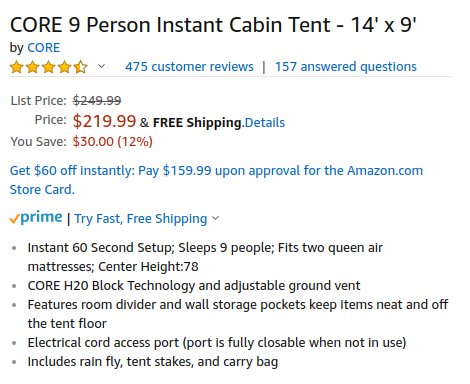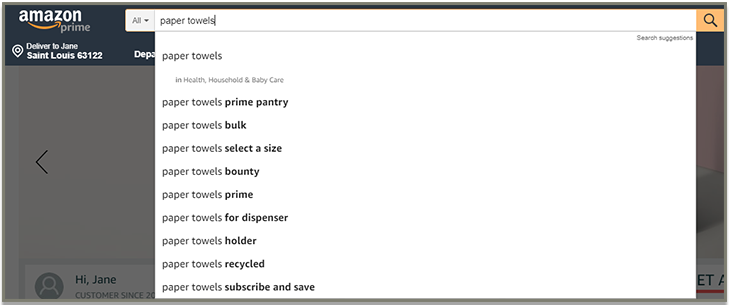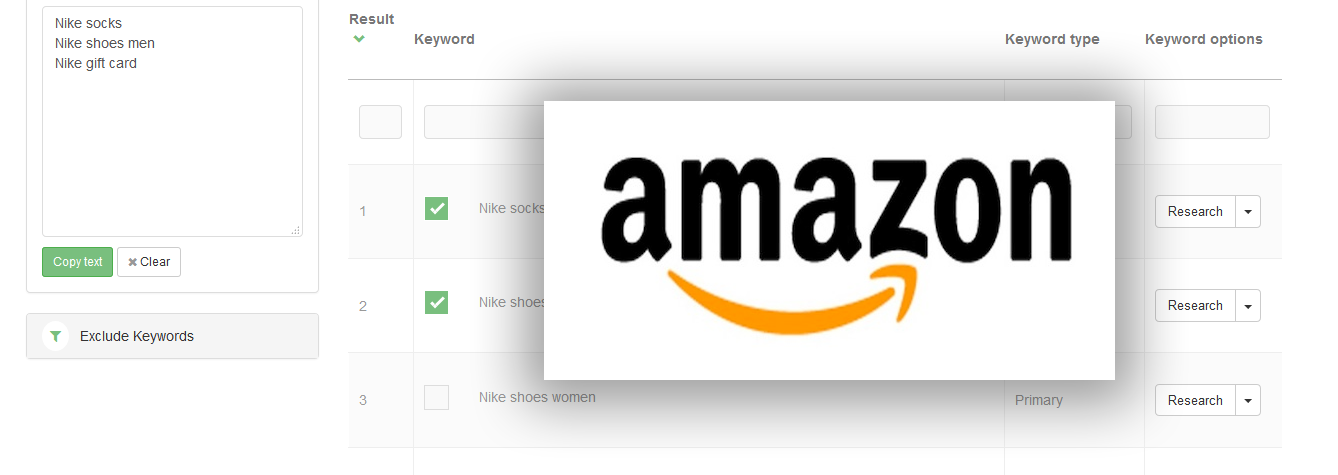The In-Depth Guide to Amazon Keyword Research This 2021
When you are selling on Amazon, one of the crucial things to focus on is to get your product listings shown to the right audience. Your products should be seen when shoppers look for them, but how, with over 12 million products sold on the marketplace? This is where Amazon keyword research comes along.
Besides winning the top spot on the Amazon Buy Box, sellers have to make sure that their product listings are ranking in the correct searches and keywords. Again, this s where the Amazon keyword comes along, a vital process all sellers should work on. When you have a list of relevant keywords, then you will experience improved visibility.
What’s great about keyword research is that it’s a simple way to increase sales on Amazon without competing on pricing or having to source new product offerings.
If you would like to take advantage of keywords but don’t know where to start, read on! This article will tackle everything you need to know about Amazon keyword research and how to conduct it yourself.
About Amazon’s A9 Algorithm
Before learning about Amazon keyword research, you need to know why you are doing it in the first place.
The goal behind keyword research is to please Amazon’s A9 algorithm. This algorithm decides Amazon’s order of search results.
Amazon is a business, and its goal is to be a customer-centric organization for everyone around the world. To provide the best customer experience for Amazon users, the company has to ensure that all the correct products are recommended when users search for something.
And this is when the algorithm does its job. There are a lot of factors that this algorithm considers, such as:
- How many shoppers add your products to their cart after they search for a keyword
- The volume of sales you’ve made with your products
- The product’s unit or session percentage rate, which is a formula Amazon uses to measure your product’s viability
- How many positive ratings and reviews do your products receive
- The ratio of units that a product sold every page visit
- The relevance of your product is based on the listing’s title, images, description, and keywords used
To ensure your product listings pass the algorithm’s standards, you have to know what keywords your customers are searching for. Amazon keyword research plays a huge role in this, which I’ll explain later on.
What is Amazon Keyword Research?
Now, what is Amazon keyword research?
Amazon keyword research is the SEO process wherein sellers find search terms to use to achieve a higher rank on the marketplace’s search engine results pages. When choosing a keyword, you are looking at the ways shoppers discover the things they want and need to purchase.
Selecting keywords isn’t just about driving traffic to your product listings thanks to specific words and phrases, though. Through accurate and in-depth keyword research, you receive valuable insights about your competitors, as well as understand consumer trends and needs, and content marketing ideas.
Now, let’s move on to what Amazon keywords are!
Keywords are the key to have your products ranked high (or low, depending on your strategy’s effectiveness).
On Amazon, you can break down keywords into three areas, based on where you place them:
- On your product titles
- The product pages
- Seller central’s hidden keywords
You will learn more about how these keyword placements play a role in product listing optimization below.
When you know how to search for and use keywords on Amazon, you ensure you use them to further drive targeted traffic. In turn, this can convert into sales and even more visibility.
Here are other things you should know when it comes to Amazon keyword research:
Amazon is a search engine
In the world of eCommerce and product inquiries, Amazon is one of the largest search engines worldwide. Because of this, Amazon users are purchase-focused. Once they enter the keyword for what they want or need, they will find it and check it out.
Users aren’t usually there to randomly search for items, they know what they want and want it speedily and efficiently.
Amazon has its own internal advertising system
One notable feature Amazon’s search engine has is the system advertising, known as Amazon PPC, which stands for Pay-Per-Click.
Sellers can use Amazon PPC to promote their products by placing bids on every click to their product listing. If you have a higher bid compared to competitors, then your product appears higher in the search results. This is different compared to organic search results, as it would have a ‘sponsored badge’ on the listing.
How Amazon Keywords are Related to Product Relevance
Amazon keywords are foundational and essential. Without the right keyword practices, what you sell on Amazon will end up being irrelevant.
Look at it this way: If you are optimizing a blog post, you are optimizing for a keyword. For instance, you want to create a blog about a list of the best dog breeds. Your main keyword will most likely be ‘best dog breeds’, which should show up in your page title, URL, meta description, and across your content.
You do this to make sure your blog post is relevant when someone searches for information about the best dog breeds. This is no different compared to Amazon product listing optimization. Here are the ways Amazon keywords are relevant:
Amazon keywords and product titles
Your product title is important and one of the determinants to your success in the search results engine of Amazon. From the POV of keywords, it’s the most crucial part of any listing.
Look at it from the perspective of an Amazon shopper. When you search for products, will you click on every result, inspecting the nitty-gritty details of all the products pages? Usually, that’s a no, as we look for shortcuts.
Rather than visiting every product page, we scan product titles, namely the first few words of the title, to narrow down our choices and find the most relevant one to our needs.
That’s why you need to put your most important keywords on the product titles and the most important keywords at the beginning of it. This is what consumers will look for to make lives easier. Furthermore, you are appeasing the algorithm as well.
Amazon keywords and product details
The product details give sellers the opportunity to outline all of their product’s best benefits and features using bullet points. This is also where you place keywords that didn’t fit in your product title.
This is important for various reasons. First off, you get to encourage prospective customers into purchasing your product thanks to your informative bullet points and enticing key features. This will then help with your ranking on search results, as conversion rates have an influence on your rank.
You also need to focus on the product details page since the algorithm indexes keywords, using them to determine the order of the search results. This is done because sellers use keywords that make their products relevant to the queries prospect shoppers are typing in when searching for their product.
Amazon keywords and seller accounts
You have probably heard of the term, ‘hidden keywords’ and ‘search terms. These are a reference to keywords you can place at the backend of Amazon seller accounts.
Hidden keywords will give sellers the opportunity to provide Amazon more information about their products. Such information will not be visible to viewers and shoppers.
Think of hidden keywords as alt texts, which website owners use to give Google information about images, helping in indexation. But instead of images, Amazon will use hidden keywords for products.
So if you would like to rank for other keywords you weren’t able to place in your product title and description, you enter the keyword into your seller account’s backend. However, there is a 250-character limit to take note of, so you need to use this wisely! The limit was placed by Amazon to avoid keyword stuffing, which leads to irrelevant information.
How Amazon.com Keyword Research is Important as an Amazon Seller
Amazon is effective in recommending products for its users. As one of the top online marketplaces worldwide, it has to!
BUT, they lack confidence. After recommending products, they have to confirm that what was recommended is the product you’ve been searching for. This is how search engines work.
While they are effective in guessing and recommending products you may need, they aren’t confident about their results at first. It isn’t until thousands to millions of people have told them about the results that they begin believing you. For now, it will need to go by the descriptive terms it’s given, which are known as keywords.
When posting a product listing on Amazon, keyword research needs to be a priority. Amazon’s algorithm will determine if your keyword is relevant for specific product searches, having your listing be placed higher in its results. This placement is the ranking.
The ranking is a very big deal, with a majority of consumers clicking on the top listing of search results. A very small percentage of consumers would check out product listings under the top 3. That alone is why you need to rank at the top!
How Amazon.com Keyword Research is Important as an Amazon Seller
Conducting Amazon keyword research can be a bit daunting, especially if you are new to doing it. You already know how to use the keywords on Amazon and know what they are all about, but what are the approaches to identifying the ones that will rank highest for your product listing?
There is a general step-by-step procedure on how to do it, making the entire process a bit simpler and less intimidating. You can also find different methods on how to create a list of keywords and narrow it down to what will work best. Here are what to follow:
Methods on searching for keywords
Before you even start using keywords and creating strategies on where to place them in your product listings, you have to identify what keywords to use. Here are the different ways you can search for the right keywords for your Amazon product listings:
Check the Amazon search bar
When entering a search query, Amazon will suggest products that other users would usually search for. This is a free keyword tool you can take advantage of!
Using the Amazon search bar provides a quick and free analysis of how your target audience would use Amazon. Sure, this isn’t the in-depth data you expect, but at least you have a gist without spending too much time or money. That said, it still is important to invest in the right solutions and tools for keyword research and sales, which will be tackled in the next section.
Once you have combed through all the different suggested queries, you can create a list of initial keywords you can start building on.
Search on Google
This is recommended to do if you sell on Amazon and your own website.
Shoppers are more likely to start their product searches on Amazon compared to Google, with 47% of online shoppers starting on Amazon, while 35% start on Google. It’s a bit smaller, but that means you’ve still got millions of online shoppers looking for products to buy on Google, including yours!
That’s why you’ll want to incorporate Google into keyword research strategies. There are Google-related keyword research tools you can utilize.
Check to see if your site scores page one results for high search volume keywords. Target the keywords on your Amazon product listings and seller account as well. This will have you build brand and product awareness in prospect shoppers that take a bit longer to convert.
Use keyword research tools
Homegrown strategies are great, especially since they are free. However, you will also need to invest in the right keyword research tools and solutions as well. There are free and paid keyword research tools and solutions to choose from, providing you the valuable data and actionable insights to help you create effective keyword strategies.
One prime example is Analytic Index. Here in Analytic Index, we focus on eCommerce growth for brands like yours. By offering various solutions that range from Digital Shelf to Sales and Share, we’ll help solve your digital commerce problems with our deep industry knowledge and capabilities.
Target product complementing your own product
Complements are products shoppers would buy together with the main product they are searching for. You’ll find it in Amazon, under the ‘Frequently bought together’ section.
When targeting complements to your product and using relevant keywords, you can make your product visible to those who aren’t looking for it directly but might be interested in it, based on their search behaviors.
Sometimes, complements are intuitive and you know people are looking for them. For instance, if you sell bread, people are most likely also searching for peanut butter or jelly.
However, in most cases, you need to conduct research. You can check out the competition and their product details pages, seeing what their customers are purchasing together. You’ll have an idea of the complements to target and their keywords, which you can add to your product listing’s description, bullet points, or in your hidden keyword section.
Find keywords with high search volume
Keywords that have a high search volume are those searched the most by shoppers looking for needed products on Amazon. This is why sellers need to target these keywords for more exposure.
With more people searching for terms you target, the more likely your product listing appears at the top of their search results. If you don’t include these high search volume keywords in product listings strategically, no one will even know your products exist.
That said, a lot of sellers would target high-volume keywords, so competition is stiff. Because of this, you should use high search volume keywords that are low in competition, finding a balance between the two.
Find keywords that have medium and low competition
As mentioned, Amazon sellers should use keywords that are both high in volume and have low to medium competition.
Keywords with high volumes offer more exposure, but the competition may make it more difficult for sellers to thrive, especially when major brands and businesses use them. When conducting Amazon keyword research, look into the competition and how much of it exists in your keywords. You can use keyword research tools to identify keywords with the appropriate competition.
These kinds of tools will give you an idea of the competition and how much of them exist. After winning these low competition keywords, you can work your way up to the high competition terms.
Improve your conversion rates
The keywords used on product listings will help determine conversion rates. Keywords that are either too broad or competitive end up having a low conversion rate.
But with detailed and accurate keyword research, you can find keywords that are better targeted and lower in competition. You might want to include long-tail keywords, which usually have higher conversion rates compared to short-tail keywords, as it attracts relevant traffic.
Understand the trends
Amazon keyword research helps sellers understand when and why shoppers are looking for specific keywords. There will be peak times and seasons when shoppers are looking for certain products, which is why you should include relevant keywords to product listings to gain sales.
Let’s say you are selling fireworks, so it’s recommended to include keywords such as ‘keywords for New Year’s’ during the holiday season. This is because more people are looking to buy fireworks during this time to ring in the new year. Leverage the trends and make a plan to make changes to product listings wherever appropriate, based on the trends.
Scope your competition
Keyword research helps in determining the keywords competitors use to rank for their own products. Knowing their keywords will be a guide for you to understand their strategies, using them to your advantage. If you don’t know what they are ranking for, then you might miss out on a lot of opportunities to outrank the competition.
That’s why you should conduct competitor research, which helps with your content strategy and what keywords you can try to use for your listings. That said, do NOT copy their keyword strategy completely. Instead, use the data you collect to create your own keyword strategy and make it even better.
Assess the keyword difficulty
Keyword difficulty refers to the difficulty of achieving a higher ranking for certain keywords on Amazon. This is a crucial metric helping Amazon sellers determine how much effort it takes to rank for specific keywords.
This metric is measured on a scale from 1 to 100. A rating of 0-9 means it is easy to rank, while anything above 50 is difficult to impossible. You need to find and target keywords that are easier to rank compared to the ones you will find difficulty in ranking for. However, it’s best to find a good balance between competition and keyword difficulty, as you’ll want less competitive yet easy to rank keywords.
Once you have done all this, you now have the data and a list of effective keywords to use and where to use them. Afterward, start again and continue conducting Amazon keyword research to continue gaining visibility and conversions in the ever-evolving world of eCommerce.
Wrapping It Up
If you want to sell more and have your listings gain more visibility by relevant audiences, then put effort into conducting quality Amazon keyword research. With the right steps, tools, and solutions, you can collect valuable data to create a keyword-optimized listing to gain sales. From here, you can also use these keywords for content creation and digital marketing strategies!
Hopefully, you gained insight into what Amazon keyword research is all about and how to use it for your product listings. Don’t wait any longer and start following these steps and tips on how to conduct keyword research to optimist your product listings now. Good luck!
If you would like to learn more about Analytic Index and the solutions we offer for eCommerce sellers and companies, don’t hesitate to contact us! We provide a vast selection of services, including Search Intelligence and Promo Accelerators, to further boost your revenue and online visibility.





